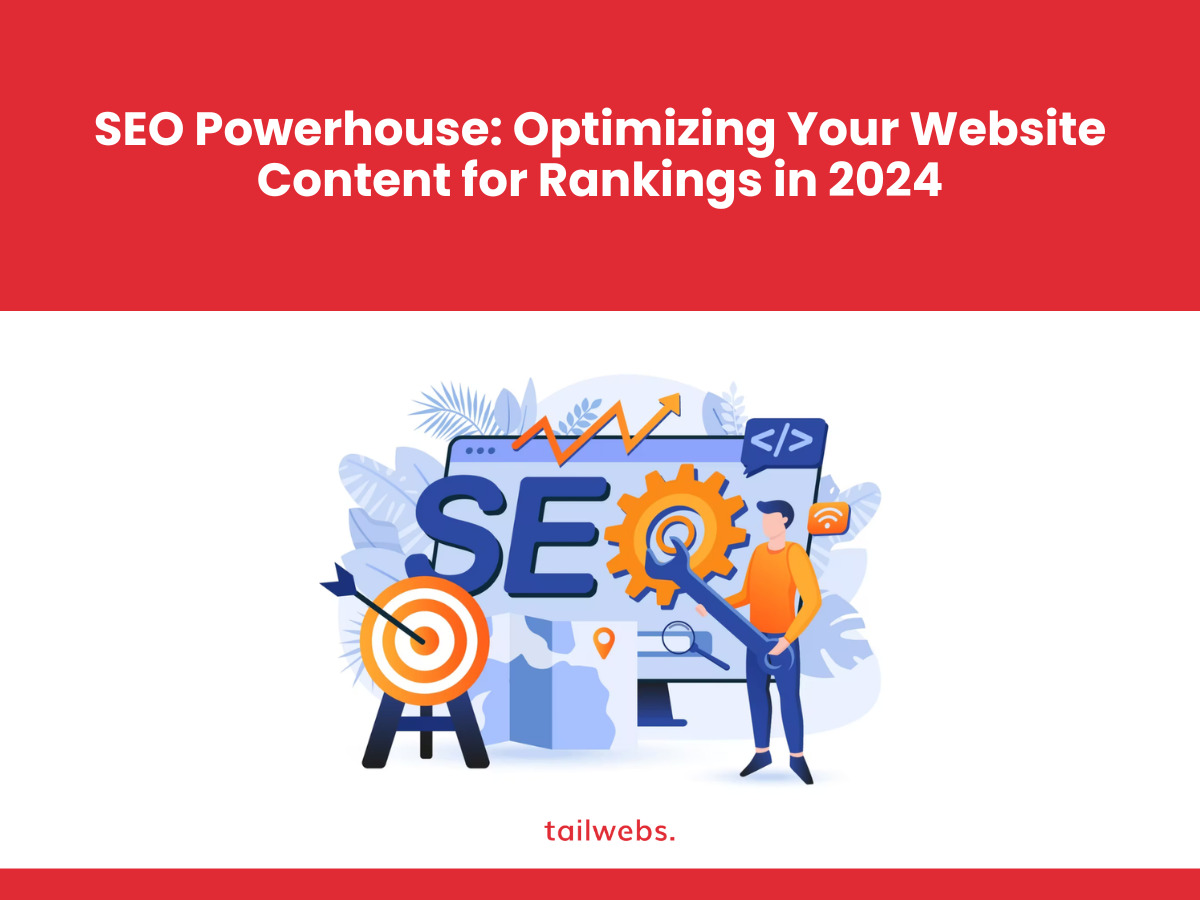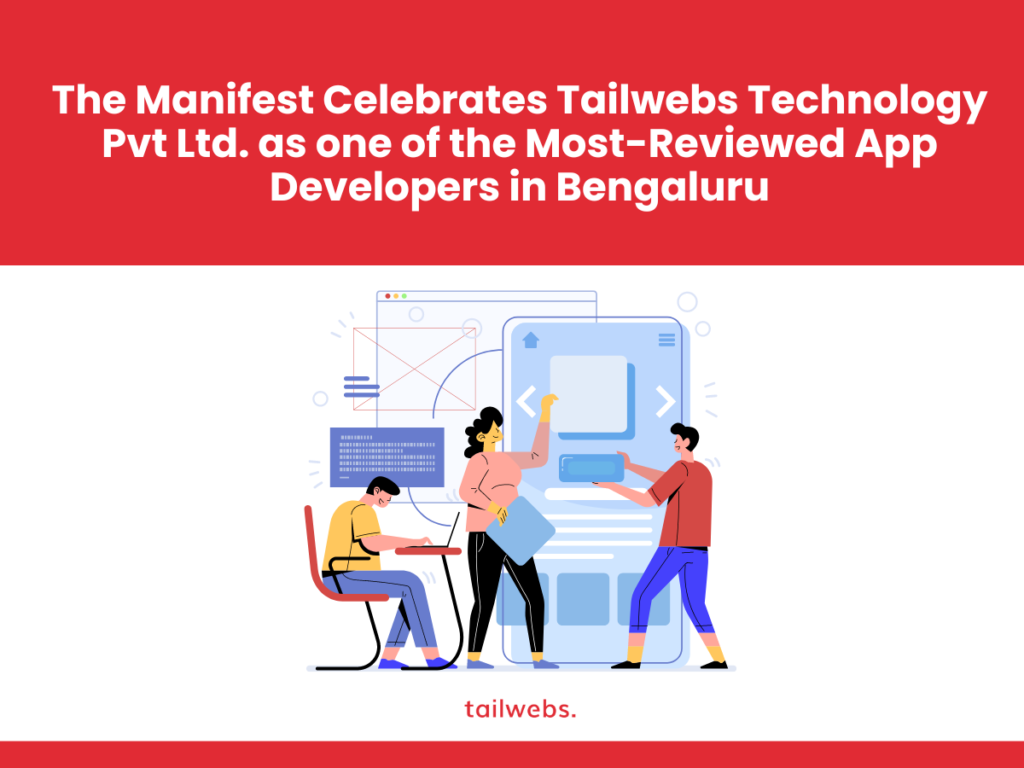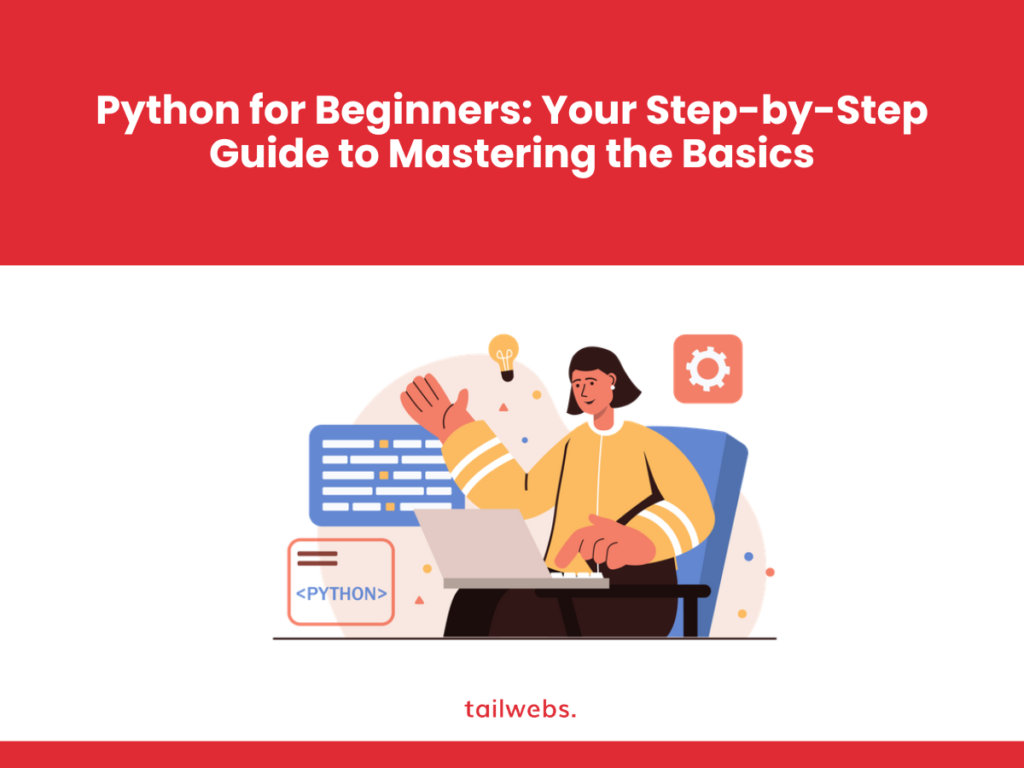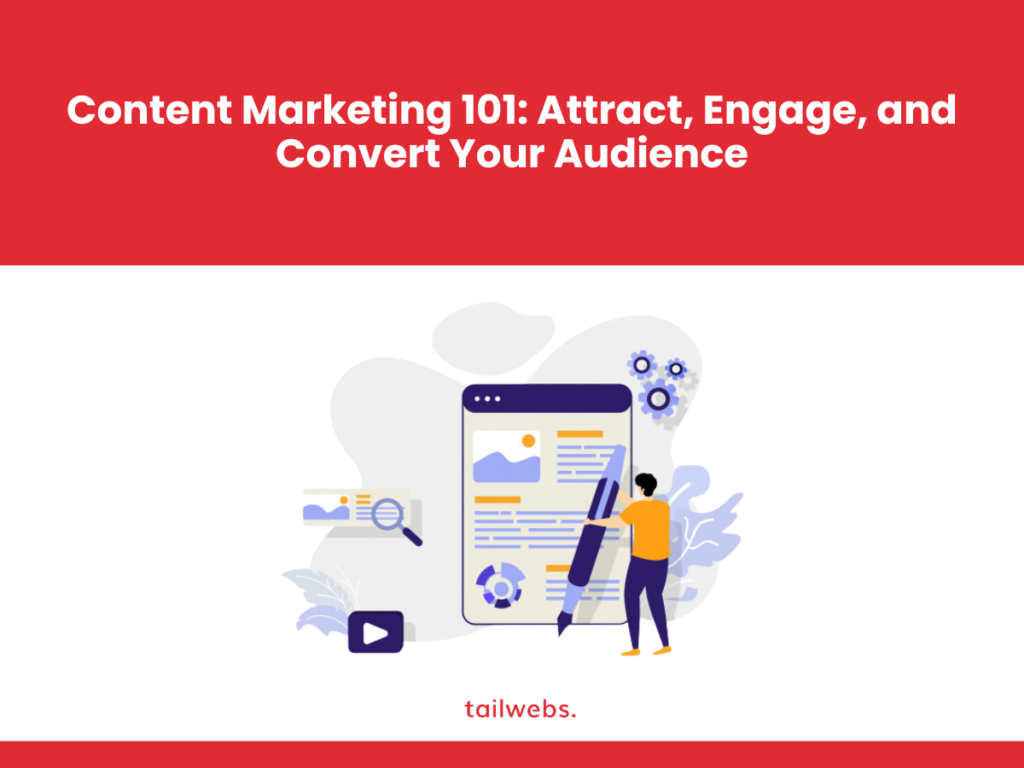SEO Powerhouse! In today’s digital landscape, a well-designed website is no longer enough. To thrive online, you need your website to be discoverable by your target audience. This is where Search Engine Optimization (SEO) comes in. SEO is the art and science of optimizing your website content to rank higher in search engine results pages (SERPs) for relevant keywords. The higher you rank, the more organic traffic you’ll attract, leading to increased brand awareness, lead generation, and ultimately, business growth.
This comprehensive guide delves into the ever-evolving world of SEO in 2024, equipping you with the knowledge and strategies to transform your website content into an SEO powerhouse.
The Power of SEO: Statistics that Can’t Be Ignored
The impact of SEO is undeniable. Here are some eye-opening statistics to showcase its importance:
Organic Search Reigns Supreme:
According to Sparktoro: https://www.sparktoro.com/, organic search drives 53% of all website traffic, surpassing paid search and social media referrals.
Top Rankings Matter:
Studies by Backlinko: https://www.backlinko.com/search-engine-ranking reveal that the top-ranking website on Google receives 31.3% of all clicks for a given search query. This number drops significantly for lower-ranking positions.
Long-Term ROI:
SEO is an investment with long-term returns. Once your website ranks well for relevant keywords, you can enjoy a steady flow of organic traffic without needing to continually pay for advertising.
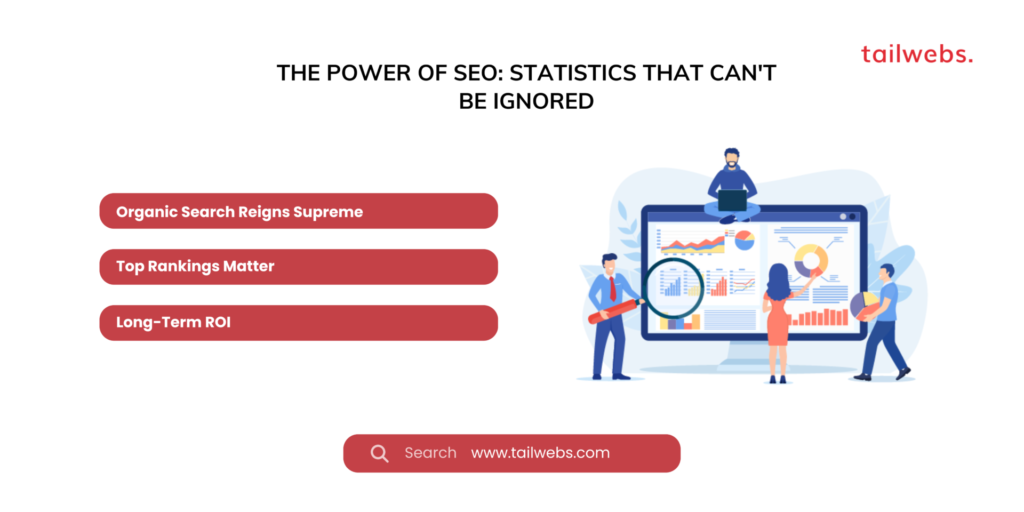
Understanding the SEO Landscape in 2024: SEO Powerhouse
Search engines like Google prioritize websites that deliver exceptional user experiences and provide valuable, relevant content to search queries. Here’s what you need to consider in 2024:
Focus on User Intent:
Go beyond just targeting keywords. Understand the user’s intent behind their search query. Are they looking for information, trying to compare products, or ready to make a purchase? Tailor your content to address their specific needs.
Content Quality is King:
High-quality, informative, and engaging content is paramount. Prioritize well-researched, well-written content that solves user problems and establishes your website as a trusted authority in your niche.
Mobile-First Indexing:
Since 2018, Google has used mobile-first indexing to determine search rankings. Ensure your website offers a seamless user experience on all devices, especially mobile phones.
Technical SEO Matters:
While content is king, technical SEO aspects like website speed, mobile-friendliness, and proper site structure play a crucial role in search engine crawlability and indexation.
Evolving Search Algorithms:
Search engine algorithms are constantly evolving to prioritize user experience and the best possible search results. Stay updated on the latest SEO trends and best practices to maintain your website’s ranking.
Optimizing Your Website Content for SEO Success
Now that we’ve established the importance of SEO and the current landscape, let’s delve into specific strategies to optimize your website content for top rankings:
Keyword Research:
Conduct thorough keyword research to identify relevant keywords with high search volume and low competition. Tools like Google Keyword Planner, Ahrefs, and SEMrush can be invaluable for this process.
Strategic Keyword Integration:
Once you have your target keywords, integrate them naturally throughout your content, including titles, headings, subheadings, and the body text. However, avoid keyword stuffing, which can penalize your ranking.
Content Quality & Depth:
Create high-quality, in-depth content that provides value to your audience. Aim for comprehensive blog posts, informative landing pages, and engaging product descriptions.
Optimize Title Tags & Meta Descriptions:
Craft compelling title tags and meta descriptions that accurately reflect your content and entice users to click on your website in search results.
Optimize Images:
Include relevant images and videos throughout your content. Use descriptive filenames and alt text to improve image searchability and accessibility.
Internal Linking:
Link to relevant pages on your website within your content. This improves website navigation for users and search engines alike.
Build Backlinks:
Backlinks are links from other websites pointing to yours. Earning backlinks from high-quality, relevant websites significantly boosts your website’s authority and ranking potential.
Beyond On-Page Optimization: Building SEO Authority
While on-page optimization is crucial, a holistic SEO strategy extends beyond your website content:
Technical SEO Audit:
Conduct a technical SEO audit of your website to identify and address any technical issues that might be hindering your ranking. Tools like Google Search Console and Screaming Frog can help uncover issues like slow loading times, broken links, and mobile-friendliness problems.
Website Speed Optimization:
Ensure your website loads quickly on all devices. Page speed is a significant ranking factor, and slow loading times can lead to high bounce rates and lost conversions.
Mobile-Friendliness:
In today’s mobile-first world, a seamless mobile user experience is critical. Test your website’s responsiveness on various mobile devices and optimize for mobile browsing.
Structured Data Implementation:
Implement structured data markup on your website. This provides search engines with richer information about your content, which can lead to richer search results and potentially improve click-through rates.
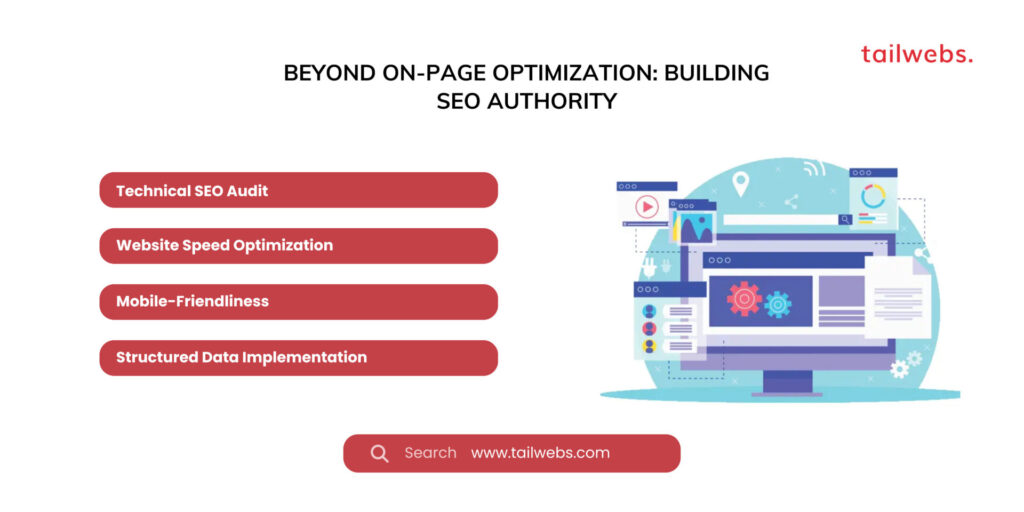
SEO Tools: Your Essential Arsenal for Success
Several valuable SEO tools can empower your optimization efforts:
- Google Search Console: This free tool from Google offers valuable insights into your website’s search performance, including keyword rankings, organic traffic data, and indexation status.
- Keyword Research Tools: Tools like Ahrefs, SEMrush, and Moz provide keyword research capabilities, competition analysis, and backlink tracking functionalities.
- Rank Tracking Tools: Monitor your website’s ranking progress for specific keywords over time with tools like SERPWatcher and Ahrefs Rank Tracker.
- Technical SEO Audit Tools: Tools like Screaming Frog and Sitechecker perform comprehensive technical SEO audits, identifying website crawling issues, broken links, and mobile-friendliness problems.
The Future of SEO: Embracing Change and Continuous Learning
The world of SEO is constantly evolving. Here are some key trends to stay ahead of the curve:
Focus on User Experience (UX):
Search engines will continue to prioritize websites that deliver exceptional user experiences. This includes factors like website speed, mobile-friendliness, and overall design that keeps users engaged.
Voice Search Optimization:
With the rise of voice search assistants like Siri and Google Assistant, optimizing your content for natural language queries becomes increasingly important.
Entity-Based SEO:
Search engines are moving towards understanding entities and topics rather than just keywords. Structure your content to provide a comprehensive understanding of the topic at hand.
Evolving Search Algorithms:
Stay updated on the latest search algorithm updates from Google (e.g., Core Web Vitals) and adapt your SEO strategy accordingly.
The Rise of Artificial Intelligence (AI) in SEO:
Expect AI to play a bigger role in SEO, with tools offering advanced content optimization suggestions and competitor analysis based on machine learning.
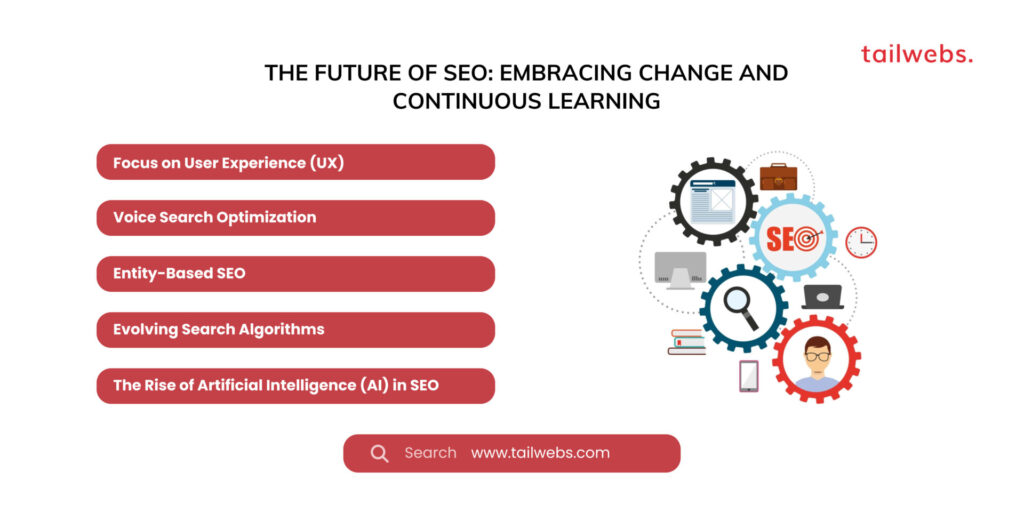
Conclusion: Building a Sustainable SEO Strategy
SEO is a marathon, not a sprint. Building a sustainable SEO strategy requires ongoing effort, adaptation, and a commitment to providing exceptional user experiences with high-quality content.
By implementing the strategies outlined in this guide, leveraging valuable SEO tools, and staying informed about the evolving search landscape, you can transform your website content into an SEO powerhouse. Remember, SEO is a journey, not a destination. Embrace continuous learning, adapt to algorithm changes, and prioritize user experience to achieve long-term SEO success and propel your website to the top of search engine results pages.
